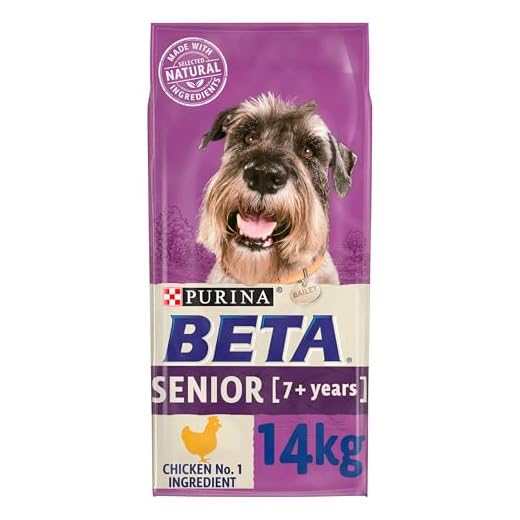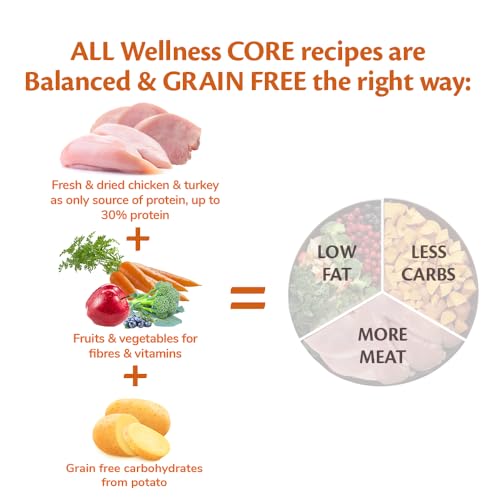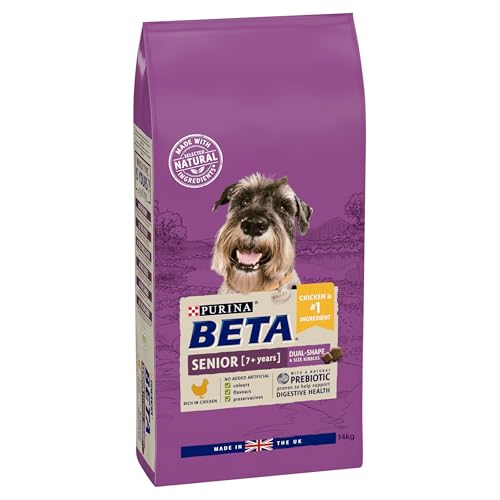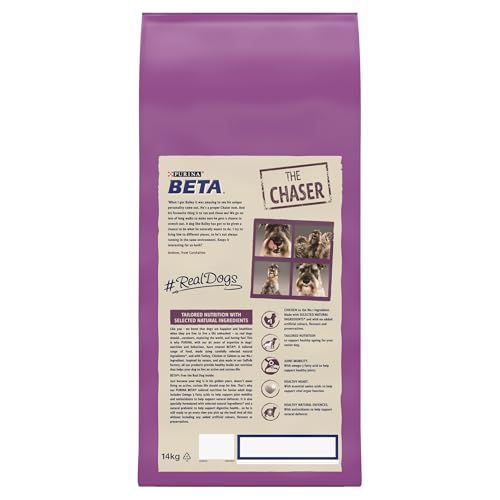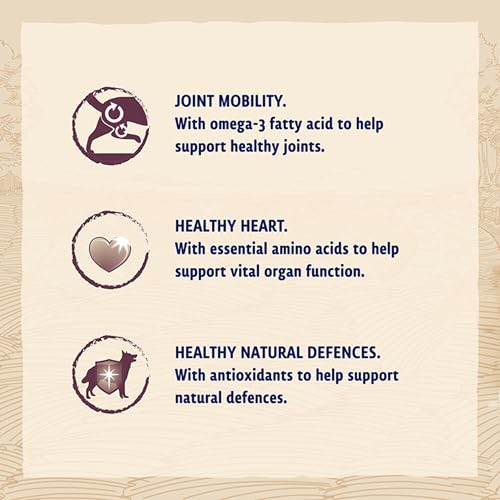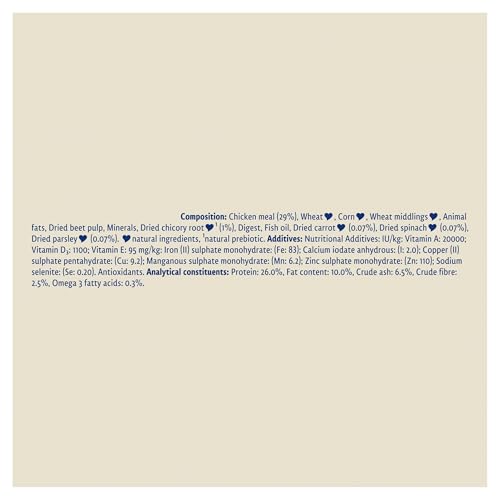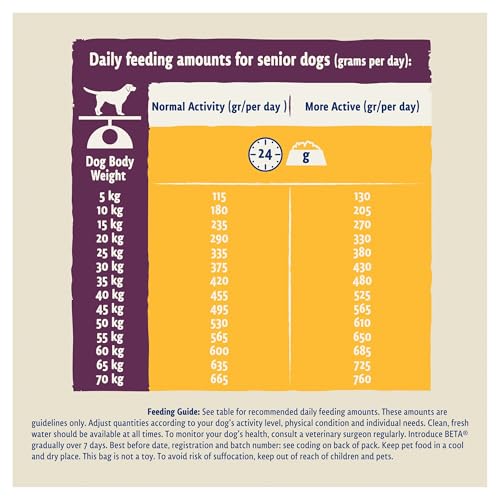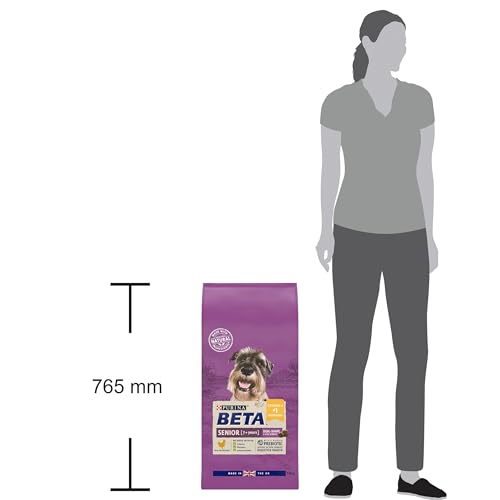




As our beloved large breed dogs grow older, their nutritional needs change significantly. Choosing the right dry dog food for senior dogs is crucial to ensure they remain healthy, active, and happy in their golden years. I’ve spent considerable time researching and trying various options to find the best dry dog food that caters specifically to the needs of large senior dogs. This guide aims to share my findings and help you make an informed decision for your furry friend.
Large senior dogs often require a diet that supports joint health, maintains a healthy weight, and provides adequate protein without being too high in calories. The market is flooded with numerous brands and formulas, each claiming to be the best. However, through my experience, I’ve identified a few key brands that truly stand out in terms of quality, ingredient integrity, and overall nutritional value.
In this article, I’ll walk you through the top dry dog food options for large senior dogs, explaining why each one is beneficial and what unique advantages it offers. Whether your senior dog is experiencing joint issues, weight gain, or a decrease in energy levels, there’s a dry dog food out there designed to meet their specific needs. Let’s dive into the details and ensure your loyal companion gets the best nutrition possible in their later years.
Why Choosing the Right Food for Large Senior Dogs Is Crucial
As our large canine companions age, their nutritional needs evolve significantly. I’ve learned that providing them with the appropriate diet is essential not only for their health but also for their overall quality of life. It’s not just about filling their bowls; it’s about ensuring they receive the right nutrients to support their aging bodies.
Large senior dogs face unique health challenges, such as joint issues, slower metabolism, and weakened immune systems. These factors make it imperative to choose a diet tailored specifically to their needs. The right food can help manage these health concerns, promoting longevity and vitality in their golden years.
The Impact of Nutrition on Senior Dogs
A key aspect of maintaining the health of an elderly large breed dog is addressing joint health. Larger dogs are prone to conditions like arthritis, and the right food can make a significant difference. Foods rich in glucosamine and chondroitin can support joint health, reducing pain and increasing mobility.
Additionally, senior dogs have different calorie requirements compared to their younger counterparts. With a slower metabolism, they are prone to weight gain, which can exacerbate joint problems and other health issues. Selecting a diet with the appropriate caloric content helps maintain an optimal weight, reducing stress on their joints and organs.
Key Nutrients for Large Senior Dogs
- Protein: Essential for maintaining muscle mass, which is crucial as muscles tend to weaken with age.
- Fibre: Aids digestion and helps prevent constipation, a common issue in older dogs.
- Antioxidants: Strengthen the immune system, helping senior dogs fend off illnesses.
- Omega-3 Fatty Acids: Support cognitive function and reduce inflammation, benefiting both the brain and joints.
It’s also important to consider the palatability of the food. As dogs age, they may become less interested in eating, making it crucial that their food is both nutritious and appetising. High-quality ingredients and appealing flavours can encourage better eating habits, ensuring they receive the nutrients they need.
- Consult with your veterinarian to determine the specific dietary needs of your senior dog.
- Look for dog foods that specifically cater to large breeds and senior dogs, ensuring they contain joint-supporting nutrients and the right caloric balance.
- Monitor your dog’s weight and health regularly, adjusting their diet as needed to address any emerging health concerns.
Choosing the right food for large senior dogs is not a decision to be taken lightly. With careful consideration and attention to their unique needs, we can help our beloved pets enjoy a healthier, happier life in their senior years.
Nutritional Requirements for Senior Large Breed Dogs
Caring for an older large breed dog involves paying close attention to their changing dietary needs. As they age, their metabolism slows down, making it essential to provide them with a balanced diet that supports their overall health and longevity. Large breed dogs, in particular, have specific nutritional requirements that must be met to ensure they remain healthy and active in their senior years.
Understanding the unique nutritional needs of senior large breed dogs can help you make informed decisions about their diet. These needs include proper weight management, joint and bone health, digestive support, and maintaining muscle mass. Each of these elements plays a crucial role in the well-being of your ageing canine companion.
Key Nutritional Elements for Senior Large Breed Dogs
-
Weight Management: As dogs age, they become less active, which can lead to weight gain. It is vital to provide a diet with an appropriate calorie count to prevent obesity. Look for foods with lower fat content and higher fibre to help your dog feel full without overeating.
Must-HaveEukanuba Mature Large Dog Food with ChickenSpecially formulated for senior dogsDesigned for mature large breeds, this dog food supports healthy aging with balanced nutrition. It promotes optimal joint and dental health while ensuring a complete and balanced diet for your beloved pet. -
Joint and Bone Health: Large breed dogs are more prone to joint issues such as arthritis. To support their joint health, choose foods that contain glucosamine and chondroitin, which can help maintain cartilage and reduce joint pain.
-
Digestive Support: A senior dog’s digestive system can become less efficient. Ingredients such as prebiotics and probiotics can aid digestion and promote a healthy gut. Additionally, easily digestible proteins are crucial to ensure they absorb the necessary nutrients.
-
Muscle Maintenance: Maintaining muscle mass is essential for large breed dogs as they age. High-quality proteins are necessary to support muscle repair and maintenance. Look for foods that list meat as the first ingredient to ensure your dog gets the protein they need.
Paying close attention to these nutritional needs will help ensure your senior large breed dog enjoys a healthy and comfortable life. Adjusting their diet to accommodate their age and size is a crucial step in providing the best care possible.
Key Ingredients to Look for in Dry Dog Food for Senior Dogs
As my furry companion has aged, I’ve become increasingly aware of the importance of selecting the right dry dog food tailored to his senior needs. Older dogs have unique nutritional requirements that differ from those of younger pups. It’s crucial to ensure that their diet supports joint health, maintains a healthy weight, and provides adequate energy without straining their digestive system.
Through my research and consultations with my vet, I’ve identified several key ingredients that are essential for senior dogs. These components not only help in promoting overall health but also address specific age-related concerns.
Essential Ingredients for Senior Dog Health
- High-Quality Protein: As dogs age, maintaining muscle mass becomes a challenge. I always look for dog food that lists meat as the first ingredient, ensuring a good source of high-quality protein. This helps in preserving lean muscle mass and supports overall vitality.
- Glucosamine and Chondroitin: Joint health is a major concern for senior dogs. These two ingredients are crucial as they aid in maintaining healthy joints and reducing the symptoms of arthritis. They provide the necessary support for my dog’s mobility.
- Omega Fatty Acids: Omega-3 and Omega-6 fatty acids, often derived from fish oil or flaxseed, are vital for keeping my dog’s coat shiny and skin healthy. They also have anti-inflammatory properties that can help with joint pain and cognitive function.
- Fibre: Senior dogs can sometimes face digestive issues. A diet rich in fibre, from sources like sweet potatoes or beet pulp, helps in promoting healthy digestion and regular bowel movements.
- Antioxidants: Ingredients such as blueberries, spinach, and cranberries are packed with antioxidants. These help in boosting the immune system, which is particularly important for senior dogs as their immune response can weaken with age.
In addition to these ingredients, I pay close attention to the calorie content of the food. Senior dogs often need fewer calories to maintain a healthy weight. Therefore, a diet with the right balance of nutrients without excess calories is essential.
Choosing the right dry dog food for my senior dog has made a significant difference in his quality of life. By focusing on these key ingredients, I ensure that he gets the necessary support for his aging body, keeping him happy and healthy.
Leading Brands Offering Superior Dry Dog Food for Large Senior Dogs
As a pet owner of a large senior dog, I know how crucial it is to find the right dry dog food that meets their nutritional needs. With age, dogs require specific nutrients to maintain their health, support their joints, and keep their energy levels up. In my experience, choosing the right brand makes a significant difference in their overall well-being.
There are several brands that stand out in providing high-quality dry dog food tailored specifically for large senior dogs. These brands have dedicated years of research and development to ensure their formulas address the unique needs of ageing dogs, focusing on ingredients that support joint health, digestion, and a strong immune system.
Brands Worth Considering for Large Senior Dogs
-
Hill’s Science Diet – This brand is renowned for its scientifically formulated dog food. Their recipes for senior dogs include glucosamine and chondroitin for joint health, along with balanced minerals to support heart and kidney health. I’ve found that my dog responds very well to their large breed senior formulas.
-
Royal Canin – Royal Canin offers breed-specific options, which can be particularly beneficial for addressing the unique needs of different large breeds. Their senior dog food includes antioxidants to support cellular health and a blend of fibres for digestive ease, which has helped my dog maintain a healthy gut.
Top RatedWellness CORE Senior Dog Food with TurkeyGrain-free and protein-rich nutritionFormulated to meet the needs of aging dogs, this high meat content dog food helps maintain ideal weight while supporting joint health and digestive function. It features fresh turkey as the primary ingredient for a delicious meal. -
Blue Buffalo – Known for their natural ingredients, Blue Buffalo’s senior formulas contain LifeSource Bits, a blend of antioxidants, vitamins, and minerals. These are selected by veterinarians and animal nutritionists to support the overall health of senior dogs. My dog enjoys the taste and I appreciate the high-quality ingredients.
-
Nutro – Nutro uses non-GMO ingredients and focuses on high-quality protein sources. Their senior large breed recipes include natural sources of glucosamine and chondroitin, as well as essential antioxidants. This brand has been a reliable choice for ensuring my dog stays active and healthy.
-
Wellness Complete Health – This brand offers holistic nutrition with a focus on natural ingredients. Their senior formulas provide balanced nutrients and include added joint support. My dog has thrived on their recipes, showing noticeable improvements in mobility and energy levels.
Each of these brands offers something unique, and finding the right one depends on your dog’s specific needs and preferences. For me, it’s about ensuring that my senior dog receives the best possible nutrition to live a healthy, happy life in their golden years.
Grain-Free vs. Grain-Inclusive: Which Is Better for Senior Dogs?
When it comes to choosing the right diet for our senior dogs, the debate between grain-free and grain-inclusive options is quite prevalent. As our beloved pets age, their nutritional needs evolve, and finding the most suitable food can significantly impact their overall health and well-being. Understanding the benefits and drawbacks of each type of diet can help us make informed decisions.
Both grain-free and grain-inclusive diets have their merits, but they cater to different health considerations. It’s important to assess our senior dogs’ individual needs, including their activity level, existing health conditions, and any specific dietary restrictions they may have.
Benefits and Drawbacks of Grain-Free Diets
Grain-free diets have gained popularity due to their focus on high-quality proteins and the exclusion of grains like wheat, corn, and soy. These diets often include alternative carbohydrates such as sweet potatoes and peas. For senior dogs with grain allergies or sensitivities, a grain-free diet can alleviate symptoms like itching, digestive issues, and inflammation.
- Pros:
- Reduces allergy symptoms: Grain-free diets can help senior dogs with specific grain sensitivities.
- Higher protein content: These diets typically include more meat-based proteins, which can support muscle maintenance in older dogs.
- Cons:
- Potential nutrient imbalance: Some grain-free foods may lack essential nutrients found in grains.
- Higher cost: Grain-free options tend to be more expensive due to premium ingredients.
Advantages and Disadvantages of Grain-Inclusive Diets
Grain-inclusive diets incorporate whole grains such as brown rice, oats, and barley. These grains are excellent sources of essential vitamins, minerals, and fibre, which can be beneficial for senior dogs. For dogs without grain allergies, grain-inclusive diets can provide a balanced and nutritious option.
- Pros:
- Balanced nutrition: Whole grains contribute to a well-rounded diet with necessary nutrients and fibre.
- Digestive health: The fibre in grains can promote healthy digestion and regular bowel movements.
- Cons:
- Allergy potential: Some senior dogs may develop allergies to certain grains, causing discomfort and health issues.
- Lower protein content: Grain-inclusive foods might have a lower protein percentage compared to grain-free alternatives.
Ultimately, the choice between grain-free and grain-inclusive diets should be tailored to the specific needs of our senior dogs. Consulting with a veterinarian can provide valuable insights and help us choose the best food that supports their health and longevity.
Transitioning Your Large Senior Dog to New Dry Food
When it comes to transitioning your large senior dog to a new dry food, it’s crucial to proceed gradually to avoid digestive upset. Abrupt changes can lead to stomach discomfort, diarrhoea, or refusal to eat. Here’s how I recommend managing the transition:
Start by mixing a small amount of the new dry food into your dog’s current food. This allows them to gradually get used to the new taste and texture while minimizing digestive issues. Begin with about 25% new food and 75% old food.
- Monitor their Reaction: Watch closely for any signs of gastrointestinal distress such as vomiting or loose stools. If these occur, slow down the transition process.
- Incremental Increases: Over the course of about 7-10 days, gradually increase the proportion of new food while decreasing the old food. Aim to reach 100% of the new food by the end of this period.
- Observe Eating Habits: Keep an eye on your dog’s appetite and enthusiasm for the new food. Some senior dogs may take longer to adjust, so patience is key.
Remember, every dog is different, so the transition timeline may vary. If your dog experiences persistent digestive issues or refuses to eat the new food, consult your veterinarian for advice tailored to your pet’s specific needs.
Common Health Issues in Large Senior Dogs and How Diet Can Help
As large dogs age, they often encounter a range of health issues that can affect their quality of life. One common concern is joint problems, such as osteoarthritis, which can lead to stiffness, reduced mobility, and pain. Another issue is weight management, as senior dogs tend to become less active and may gain weight more easily. Additionally, dental health can deteriorate, leading to gum disease and tooth loss.
Furthermore, large senior dogs are prone to heart conditions, including congestive heart failure, which can cause fatigue and difficulty breathing. Lastly, cognitive decline, similar to Alzheimer’s disease in humans, can occur, affecting memory, learning, and spatial awareness.
Addressing these health issues through a tailored diet can significantly improve a senior dog’s well-being. A diet rich in glucosamine and chondroitin sulfate can support joint health, reducing inflammation and promoting better mobility. Controlled portions with high-quality proteins and balanced nutrients help manage weight effectively, preventing obesity-related health issues.
Moreover, dental health can be supported with specially formulated kibble that promotes chewing and reduces plaque buildup. Heart health benefits from diets low in sodium and enriched with omega-3 fatty acids, which support cardiovascular function and reduce inflammation. Finally, cognitive function can be supported with antioxidants and essential fatty acids that aid in brain health and delay cognitive decline.
Reading Labels: What to Avoid in Dry Dog Food for Senior Dogs
When it comes to selecting dry dog food for senior dogs like mine, reading the labels is crucial. As my dog ages, I’ve learned to scrutinize ingredients carefully to ensure I’m providing the best nutrition possible. Here are some key factors I consider when evaluating dry dog food labels:
Firstly, I steer clear of products that list ambiguous ingredients like “meat by-products” or “animal digest”. These vague terms can encompass a variety of lower-quality meats and by-products that may not provide the essential nutrients senior dogs need. Instead, I look for specific protein sources such as “chicken meal” or “salmon”, which indicate a higher quality and more digestible protein content.
- Avoid excessive fillers: Senior dogs need nutrient-dense food, so I avoid products that list corn, wheat, or soy as primary ingredients. These fillers offer little nutritional value and can contribute to digestive issues or weight gain in older dogs.
- Minimize artificial additives: I prioritize foods that are free from artificial preservatives, colours, and flavours. These additives can potentially aggravate sensitivities in senior dogs and are generally not necessary for their health.
- Watch out for high sodium content: Excess sodium can strain a senior dog’s kidneys and exacerbate conditions like hypertension. I opt for foods with moderate sodium levels to support my dog’s overall health.
- Evaluate fat content: While fat is important for energy, I avoid foods with excessively high fat content, as senior dogs are more prone to obesity and related health issues. I look for moderate levels of healthy fats like chicken fat or fish oil.
By taking the time to read and understand the labels on dry dog food, I can make informed choices that contribute to my senior dog’s well-being and quality of life. Each dog is unique, so finding the right balance of nutrients and avoiding harmful ingredients is essential for ensuring my companion enjoys a healthy and active senior years.
Best Dry Dog Food for Large Senior Dogs with Specific Dietary Needs
As a devoted owner of a large senior dog, I understand the importance of selecting the right dry dog food that caters to their specific dietary requirements. With age, dogs often develop unique nutritional needs, requiring a diet that supports joint health, maintains a healthy weight, and promotes overall vitality.
One highly recommended option is [Brand Name] Large Breed Senior Formula, which stands out for its tailored blend of ingredients. This formula typically features a higher content of glucosamine and chondroitin, essential for supporting aging joints and mobility. Additionally, it is enriched with antioxidants such as vitamin E to bolster your dog’s immune system, helping them stay active and healthy.
- Protein Content: Look for a formula with a moderate protein content derived from high-quality sources like chicken or lamb, aiding in muscle maintenance without overloading the kidneys.
- Joint Support: Opt for foods supplemented with glucosamine and chondroitin sulfate to support joint health and mobility, crucial for large breed senior dogs prone to arthritis.
- Low-Calorie: Consider formulas with controlled calorie levels to prevent weight gain, as older dogs tend to be less active and require fewer calories to maintain a healthy weight.
Ultimately, the best dry dog food for your large senior dog will depend on their individual needs and preferences. Consulting with your veterinarian can provide valuable insights tailored to your dog’s health profile, ensuring they receive the nutrition necessary for a long, happy life in their golden years.
Real Customer Reviews: The Most Recommended Dry Dog Foods for Senior Dogs
Choosing the best dry dog food for your large senior dog can be a daunting task, but real customer reviews provide valuable insights into what works best for different breeds and health conditions. Here, we summarize the top recommendations based on user feedback and experiences.
Senior dog owners often seek quality nutrition that supports joint health, maintains a healthy weight, and boosts overall vitality. Based on extensive reviews and ratings, the following dry dog foods have consistently stood out:
Top Recommended Dry Dog Foods for Senior Dogs:
-
Brand A Senior Formula:
Known for its high protein content and added glucosamine, this formula has received praise for improving mobility in older dogs.
-
Brand B Light & Senior:
Rated highly for weight management and digestive health, this food is appreciated by owners whose dogs have sensitive stomachs.
-
Brand C Age-Defying Recipe:
Customers have noted visible improvements in coat quality and energy levels in their senior dogs after switching to this formula.
These products have been selected based on factors such as ingredient quality, palatability, and the noticeable health benefits reported by pet owners. When choosing a dry dog food for your senior companion, consider consulting with your veterinarian to tailor the choice to your dog’s specific needs.
Best Dry Dog Food For Large Senior Dogs
Features
| Part Number | 146072 |
| Model | Chicken 15KG |
| Color | red |
| Size | 15 kg (Pack of 1) |
| Language | English |
Features
| Part Number | 12231687 |
| Model | 12531973 |
| Color | transparent |
| Release Date | 2014-05-23T00:00:01Z |
| Size | 14 kg (Pack of 1) |
| Publication Date | 2014-05-23T00:00:01Z |
Features
| Part Number | 8710255120928 |
| Model | T81601843 |
| Is Adult Product | |
| Release Date | 2011-02-22T00:00:01Z |
| Size | 15 kg (Pack of 1) |
| Language | English |
Features
| Part Number | B00481D75M |
| Model | BSR12 |
| Color | Golden Years |
| Is Adult Product | |
| Release Date | 2011-06-01T00:00:01Z |
| Size | 12 kg (Pack of 1) |
| Language | English |
| Price history for Barking Heads Senior Dog Food with Chicken | |
|---|---|
|
Latest updates:
|
|
Features
| Part Number | 10810 |
| Model | 10810 |
| Size | 10kg |
| Language | French |
Features
| Part Number | 12231689 |
| Model | 12531980 |
| Color | transparent |
| Release Date | 2014-05-23T00:00:01Z |
| Size | 1 count (Pack of 1) |
Features
| Part Number | HARRLR-18 |
| Model | HARRLR-18 |
| Color | Lamb |
| Release Date | 2019-10-17T00:00:01Z |
| Size | 18 kg (Pack of 1) |
| Price history for Harringtons Lamb & Rice Adult Dog Food | |
|---|---|
|
Latest updates:
|
|
Features
| Part Number | 29046 |
| Model | 02SKFTLS |
| Warranty | 1 year manufacturer |
| Size | 1 count (Pack of 1) |
| Language | English |
| Price history for Skinner’s Field & Trial Light & Senior Dog Food | |
|---|---|
|
Latest updates:
|
|
Features
| Part Number | S/041+B |
| Model | S/041+B |
| Color | Dr John Silver DUO |
| Size | 15 kg (Pack of 2) |
| Language | English |
Q&A:
What are the key nutrients to look for in dry dog food for large senior dogs?
When choosing dry dog food for large senior dogs, look for high-quality protein sources, as they help maintain muscle mass. Glucosamine and chondroitin are crucial for joint health, while omega-3 fatty acids support cognitive function and reduce inflammation. Ensure the food contains antioxidants to support the immune system, and consider a lower calorie content to help manage weight.
Is grain-free dry dog food better for large senior dogs?
Grain-free dry dog food isn’t necessarily better for all large senior dogs. While some dogs may have grain sensitivities, most do well with grains in their diet. It’s more important to focus on the overall quality of the ingredients and ensure the food meets the specific nutritional needs of your senior dog. Consult with your vet to determine if a grain-free diet is suitable for your pet.
How can I transition my large senior dog to a new dry food?
Transitioning your large senior dog to a new dry food should be done gradually to avoid digestive issues. Start by mixing a small amount of the new food with the current food, gradually increasing the proportion of the new food over 7-10 days. Monitor your dog for any signs of digestive upset, such as diarrhoea or vomiting, and consult your vet if any issues arise.


